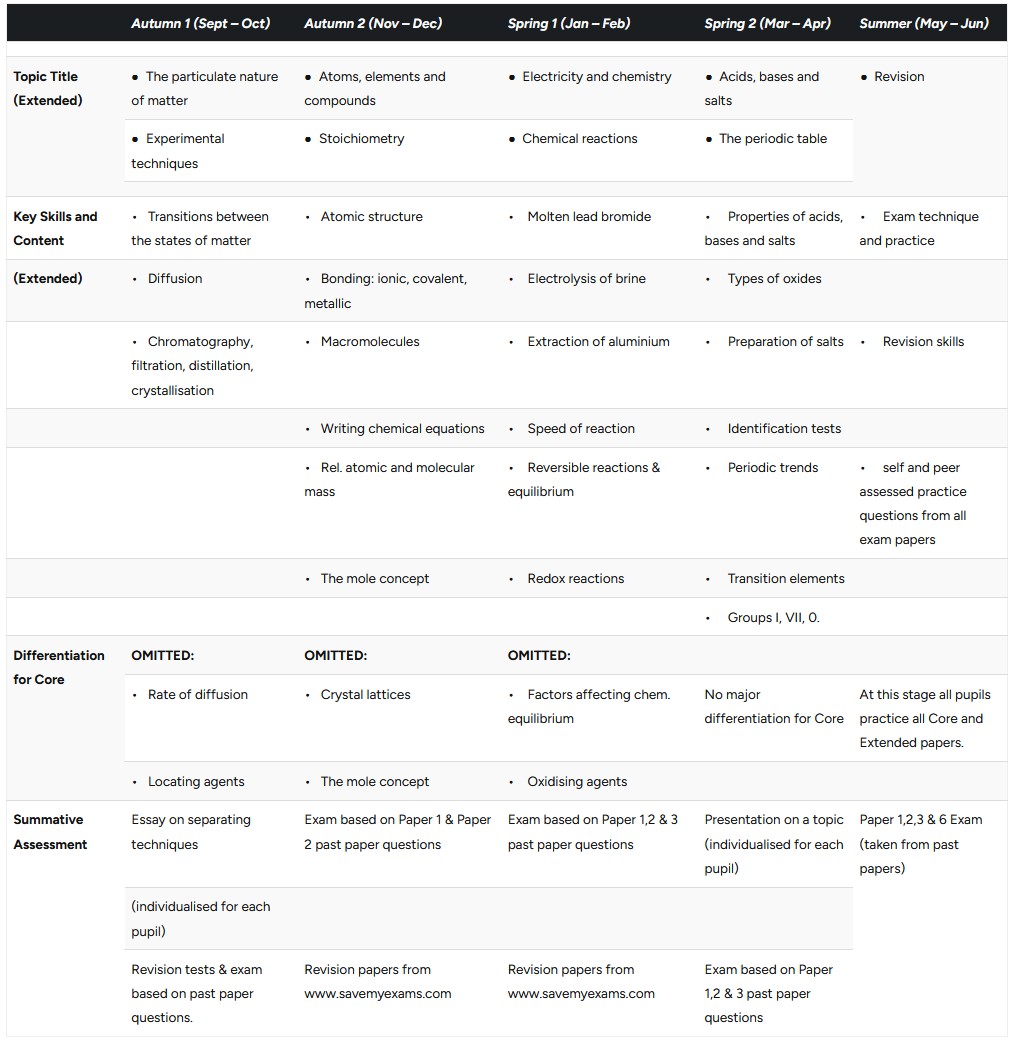| | | | | |
| Topic Title (Extended) | ● The particulate nature of matter | ● Atoms, elements and compounds | ● Electricity and chemistry | ● Acids, bases and salts | ● Revision |
| ● Experimental techniques | ● Stoichiometry | ● Chemical reactions | ● The periodic table |
| | | |
| Key Skills and Content | • Transitions between the states of matter | • Atomic structure | • Molten lead bromide | • Properties of acids, bases and salts | • Exam technique and practice |
| (Extended) | • Diffusion | • Bonding: ionic, covalent, metallic | • Electrolysis of brine | • Types of oxides | |
| • Chromatography, filtration, distillation, crystallisation | • Macromolecules | • Extraction of aluminium | • Preparation of salts | • Revision skills |
| | • Writing chemical equations | • Speed of reaction | • Identification tests | |
| | • Rel. atomic and molecular mass | • Reversible reactions & equilibrium | • Periodic trends | • self and peer assessed practice questions from all exam papers |
| | • The mole concept | • Redox reactions | • Transition elements | |
| | | | • Groups I, VII, 0. | |
| Differentiation for Core | OMITTED: | OMITTED: | OMITTED: | | |
| • Rate of diffusion | • Crystal lattices | • Factors affecting chem. equilibrium | No major differentiation for Core | At this stage all pupils practice all Core and Extended papers. |
| • Locating agents | • The mole concept | • Oxidising agents | | |
| Summative Assessment | Essay on separating techniques | Exam based on Paper 1 & Paper 2 past paper questions | Exam based on Paper 1,2 & 3 past paper questions | Presentation on a topic (individualised for each pupil) | Paper 1,2,3 & 6 Exam (taken from past papers) |
| (individualised for each pupil) | | | |
| Revision tests & exam based on past paper questions. | Revision papers from www.savemyexams.com | Revision papers from www.savemyexams.com | Exam based on Paper 1,2 & 3 past paper questions |

